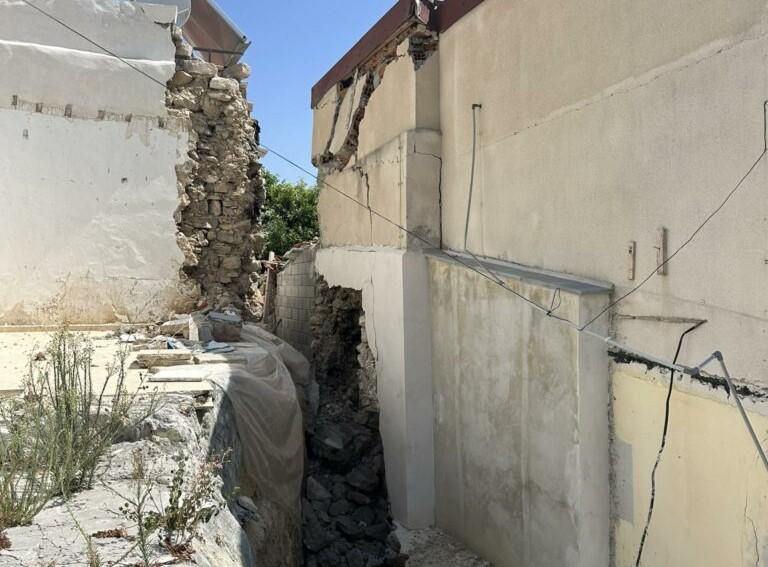On Monday, 1 July, the Department of Geological Surveys of Cyprus made an announcement that construction of buildings may be permanently banned on certain plots of land in the Pissouri area.
The geological situation in the region is, in fact, much worse than originally thought.
The agency made it clear that research was ongoing but that some of the data already raised serious concerns. In particular, there are tectonic faults in Pissouri, combined with the occurrence of sinkholes in the soil. More broadly, experts are concerned about the complex geology of the area. The data that was previously known was not sufficient to give an accurate picture of what was happening.
Therefore, the installation of a retaining wall to stabilise the ground and prevent a landslide had to be frozen. The Department stated that officials decided to conduct additional studies to eliminate all risks, as even the smallest mistake could have a negative impact on hundreds of homes in Pissouri. The retaining wall project will not bring the desired results and will be a waste of public money.
The department has confirmed that approximately 50 homes have been severely damaged, with 30 completely destroyed. Another 38 emergency buildings were recently evacuated on an emergency basis, and 100 buildings in Pissouri remain at risk of collapse. The fate of these buildings depends directly on the competence of local officials.
It is important to note that on 6 September 2023, the Ministry of the Interior signed a decree declaring the territory of Pissouri village a White Zone, in which the construction of new houses is prohibited. This includes not only new projects in the village but also those that were underway. However, the Department of Geological Surveys of Cyprus has started to carry out studies in order to eliminate the problem of land subsidence and destruction of buildings caused by the landslide.
The studies will be completed by the end of 2024, so the situation will finally clear up during 2025.

The magnificent village of Pissouri is situated on the west coast of Cyprus, halfway between Limassol and Paphos.
Many years ago, several hundred English families bought flats and villas in the village. Many of them, especially retired people, invested all their savings in Cypriot property, having sold their property in England. They would have lived here happily if it weren't for the landslide in 2012. The land literally "sagged" just in the place where there were dozens of houses (district Limnes, which means "lakes").
The houses cracked, the walls collapsed, the roofs collapsed, the communications (electricity, water, sewerage) stopped functioning. The owners of the marvellous houses by the sea were forced to endure hell and endless "fighting" with the authorities. They had to urgently look for other accommodation, as it was dangerous to stay in the houses.

i